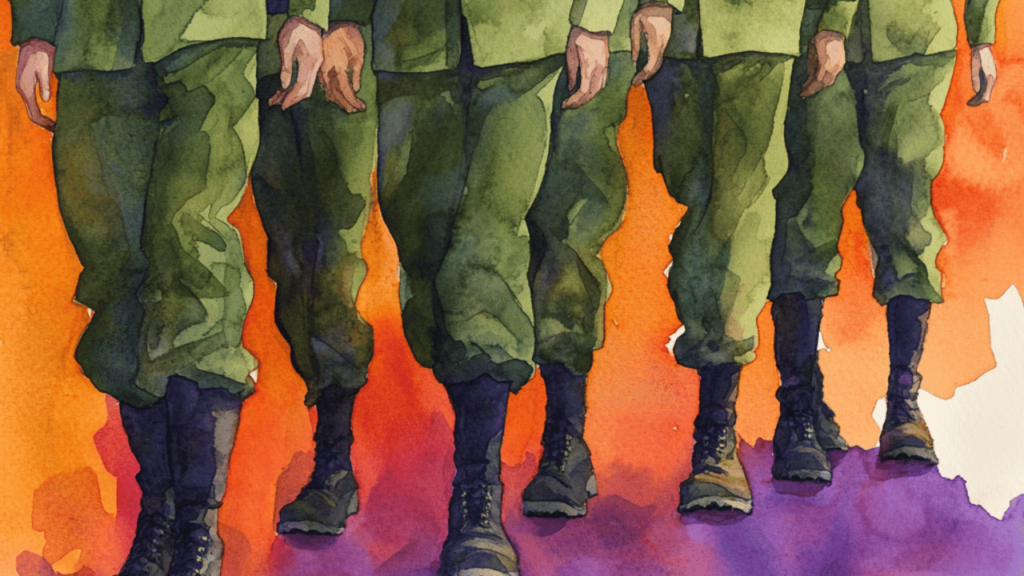Sihem has just completed her citizen registration and will receive a written summons in a few months indicating the date and location of her Defense and Citizenship Day (JDC). She wonders if it is mandatory and if she can keep her headscarf on during this day.
What does the law say?
What is the Defense and Citizenship Day?
Young French citizens receive a summons for the Defense and Citizenship Day (JDC) about a year after their registration date, which must be done at age 16. This summons specifies the place and date where the Defense and Citizenship Day will take place, and is issued at least 45 days before the date of said day.
Participants in the Defense and Citizenship Day are subject to a special status: they have the status of national service conscripts (Art. L114-10 National Service Code):
French citizens participating in the Defense and Citizenship Day have the status of national service conscripts.
They are placed under the responsibility of the State.
Individuals who suffer bodily harm during the Defense and Citizenship Day can, as well as their beneficiaries, obtain compensation from the State intended to ensure full indemnification of the damage suffered, calculated according to common law rules.
No recourse action can be taken against the legal entities that own the reception premises.
Is the Defense and Citizenship Day mandatory?
Participation in the Defense and Citizenship Day is a mandatory act of citizenship for French citizens aged sixteen to twenty-five.
This obligation ceases at age 25, which means that if you have not completed your registration at 16, you can still regularize the situation to obtain the certificate of participation before your 25th year.
What is the role of the Defense and Citizenship Day?
Its role is to provide, among other things, education on national defense issues, institutions, civic responsibility, and gender equality. An assessment test of fundamental French language skills is also offered to the conscripts. The JDC program is specified on the summons order.
This day ends with the issuance of an individual certificate of participation, which is essential for many procedures: to take exams such as the baccalaureate or BEP, administrative competitions, or the driving license exam.
Is it possible to attend the day while wearing a religious symbol?
Participants in the citizenship day are subject to the principle of neutrality of the public service in which they participate during this day due to their legal status as national service conscripts and because they are placed under the responsibility of the State.
According to Article R112-15 paragraph 6 of the National Service Code, national service conscripts are prohibited from “displaying political or religious signs which, by their nature, their ostentatious character, or the conditions in which they are worn, would constitute an external manifestation of provocation, proselytism or propaganda”.
Failure to comply with the rules may result in the exclusion of the conscript. It is then up to them to contact the competent national service center to regularize their situation and request a new summons.
APPLICABLE REFERENCES
Articles L114-1 to L114-13 of the National Service Code; Articles R112-7 to R112-9 (Summons to JDC, certificate and regularization of situation); Order of July 21, 2020 setting the amount of travel allowance for young French people summoned to JDC; Order of January 11, 2016 relating to the registration and participation of French citizens established outside France in the JDC, outside the national territory; Instruction of September 15, 2017 relating to medical exemption from participation in the JDC; Article L3142-97 of the Labor Code (exceptional absence for employees).




